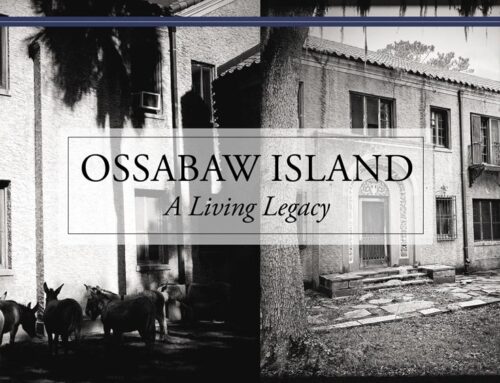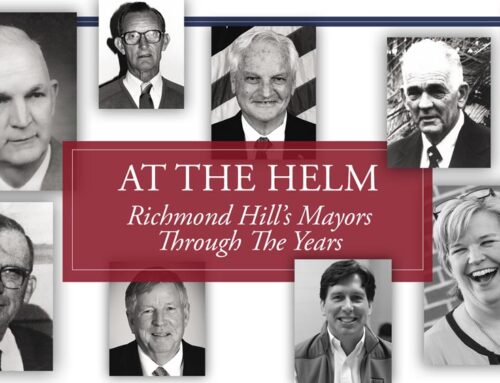
Leslie and Lucy Long
The Henry Ford Era in Richmond Hill, Georgia
WORDS BY CHRISTY SHERMAN PHOTOS COURTESY OF RICHMOND HILL HISTORICAL SOCIETY
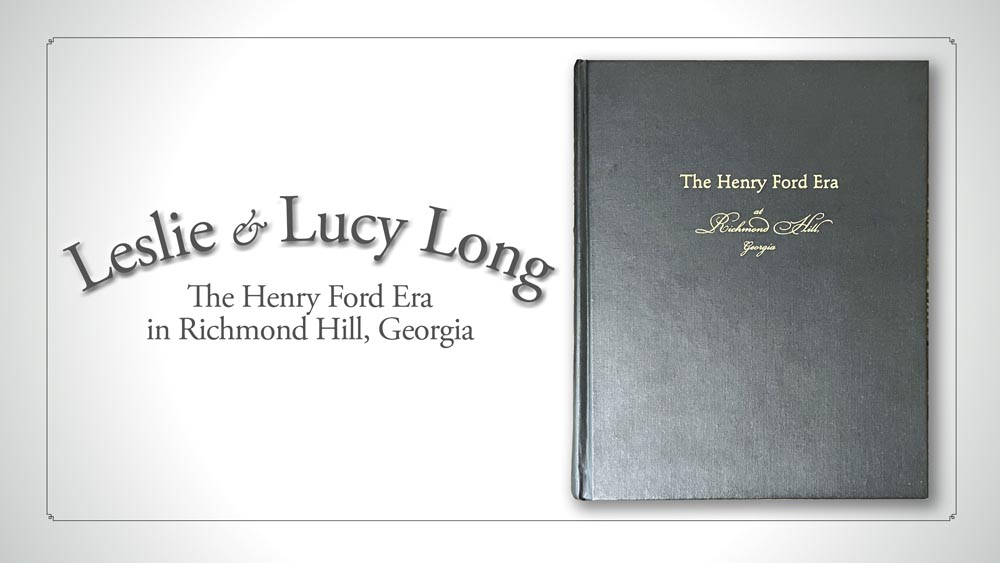
The decision made by Henry and Clara Ford in the 1920s to make Georgia their new winter home has had a lasting impact on generations of people in Richmond Hill. One of the best resources that documents the Fords’ contributions from 1925-1950 is The Henry Ford Era in Richmond Hill, Georgia. The authors, Dr. Leslie Long and Lucy Bunce Long, began working for the Fords as young adults (Leslie in 1938 at age 19 and Lucy in 1940 at age 20). Their book, published in 1998, is filled with black and white photographs of various buildings, people, and items, with detailed memories of almost every aspect of the Fords’ Richmond Hill Plantation operations.
Just out of high school, Leslie worked for Henry Ford as a general laborer, a self-described “ditch digger,” until he worked his way up to Ford’s Research Laboratory.
He worked in the soil testing program under head chemist, Harry Ukkelberg. Ford started the lab in 1936 for the purpose of converting agricultural products into automobile parts. The chemists at the lab successfully produced plastic from corn cobs and sawdust, which were used to make gear shift knobs and distributor caps. In addition, the team made rope and other textiles, including a new pair of socks for Mr. Ford, much to his delight. Leslie remembered Mr. Ford showing off the socks by pulling up his pants legs and telling townspeople that they used to be a black gum tree.
Meanwhile, Lucy (a descendant of Isaac Newton on her mother’s side) taught math and science at Richmond Hill High School and worked in the research laboratory with Leslie during the summers. When World War II started, she served as the secretary of the rationing board. Later, she was the payroll clerk in the plantation office.
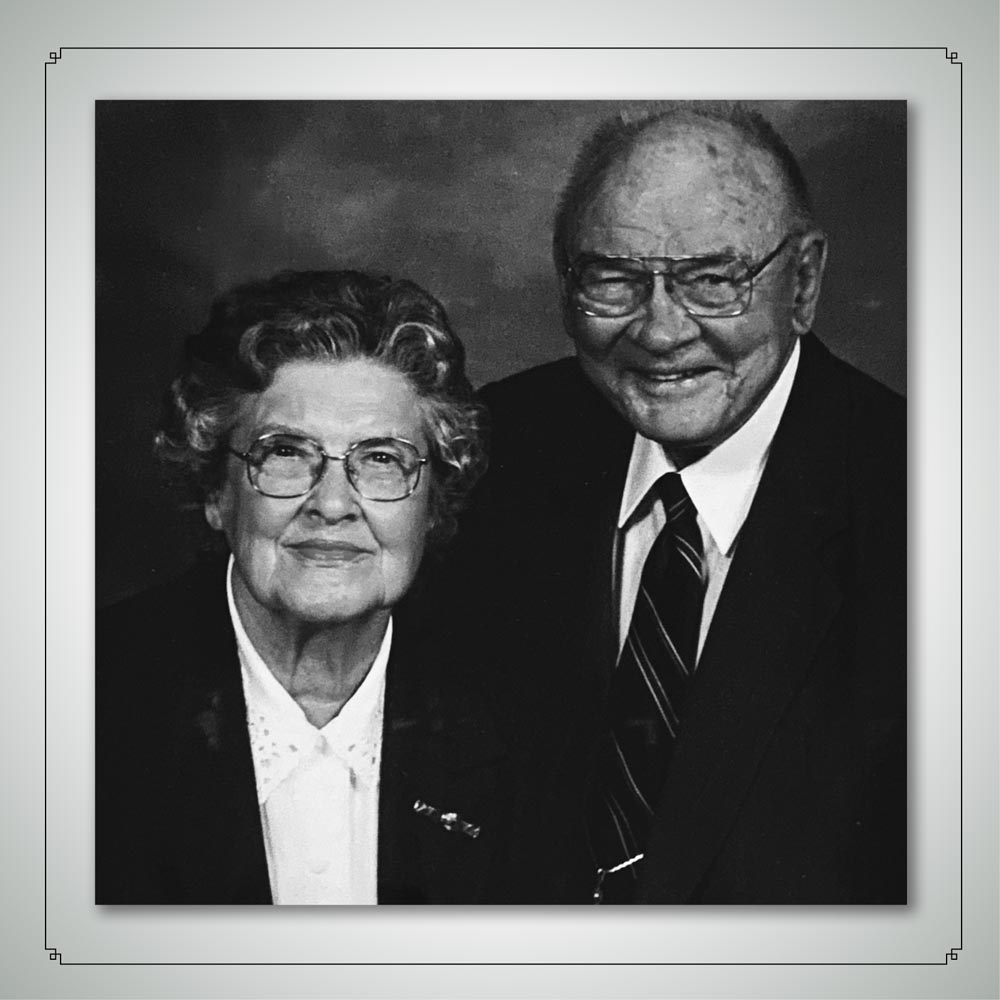
The two colleagues fell in love and were married in 1943 in Ford’s Martha-Mary Chapel in Richmond Hill and moved into their new home, a beautiful white house on the corner of what is now Linwood Avenue and Maple Street, which was provided by Ford, rent-free.
After Mr. Ford died in 1947 and Mrs. Ford’s death in 1950, the Longs moved to Athens, Georgia, to pursue higher education and advance their careers. Leslie, undoubtedly influenced by the work he had performed in Ford’s laboratory, obtained a Bachelor of Science degree in Agriculture and a Master of Science in Agronomy from the University of Georgia. Later, he received a Ph.D. in soil chemistry from the University of Florida. He went on to work for the U.S. Department of Agriculture in Florence, South Carolina, and later as an Assistant Professor in the Agriculture Department of Auburn University. Lucy obtained a Master’s in Mathematics and continued teaching until 1960.
In 1982, the couple retired and decided to move back to Richmond Hill. By this time, many who had lived during the Ford era in Richmond Hill had passed away. Over the years, they had often thought how important it was for someone to record the Ford history for future generations and even considered documenting it themselves. Still, busy careers and a lack of historical writing experience gave them pause. ‘We kept thinking someone else would write about it,’ Leslie noted in an oral history on record at the Richmond Hill History Museum.
During their retirement years, the two helped form the Richmond Hill Historical Society (RHHS). Their interactions with others made it even more evident the Ford history should be preserved and highlighted, “We finally decided that it was our responsibility, to the memory of Mr. and Mrs. Ford, to record what we could and publish this history before it was lost.” said Leslie.
Almost seventy years after beginning work for the Fords, Leslie and Lucy gathered photos from their personal collections and those of local friends and neighbors. Then, they visited the Ford archives in Dearborn, Michigan, and consulted with historians and archivists. As a result, their book slowly materialized the help and encouragement from many, as noted in the Acknowledgments.
Local historian, Buddy Sullivan, who served as a consultant on the book, recalls. I remember vividly that Leslie invited me to be one of their very first guest lecturers of the Richmond Hill Historical Society at the Ford Kindergarten building. I forget what I talked about, but it was then that I began my close association with the Longs, Buck and Bertie Rahn, Jackie and Dale Mitchum, Charles Boles, Thelma Spier, and many other long-time locals who began the RHHS. I was so happy for them when that beautiful book of their memories and old photographs came out, and it was such an honor for me to be part of that,” says Buddy.
Soon afterward, Dr. Long went to the Bryan County Commission and recommended that the county engage Buddy to research and write a comprehensive history of Bryan County, From Beautiful Zion to Redbird Creek, published in 2001 with the blessing of the Longs.
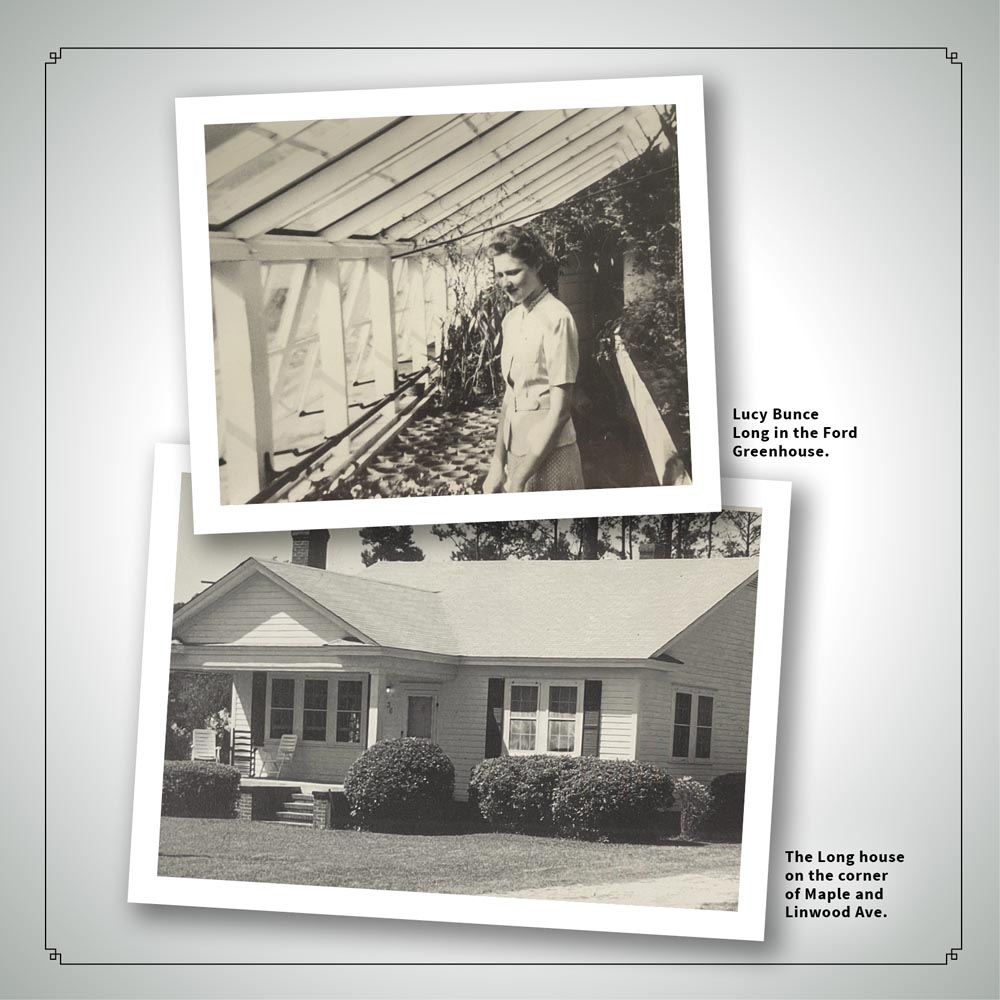
“There were so many warm memories of the Longs that I shall never forget—dinner gatherings at the Longs’ home in lower Bryan County, monthly meetings of the historical society, listening to both of them for hours and hours as they shared their memories of their association with Henry Ford. For the Longs and their Richmond Hill contemporaries, it was ALWAYS “Mr. Ford.” Their references to him were never just “Ford” or “Henry Ford” but the respectful “Mr. Ford.” It revealed to me the high degree of esteem they always held for Henry Ford when they worked for him in the 1930s and 1940s,” Buddy adds.
The Longs’ 336-page book, which includes over 200 photos, was well received in Georgia and Michigan alike. The Longs were honored with a “Friend of Ford” award by the Henry Ford Heritage Association. Today, the book is out of print and is considered a rare find. Occasionally, a lucky buyer can find one on resell sites online but with a premium price tag.
In 2000 at age 81, Leslie passed away, followed by Lucy in 2004. They had been married for 56 years. In their will, the Longs made sure to set up scholarships for future local high school graduates. In addition, they bequeathed an endowment and the book rights to the Richmond Hill Historical Society. The society plans to reprint a second version of the book so that this important history can continue to live. Stay tuned.












